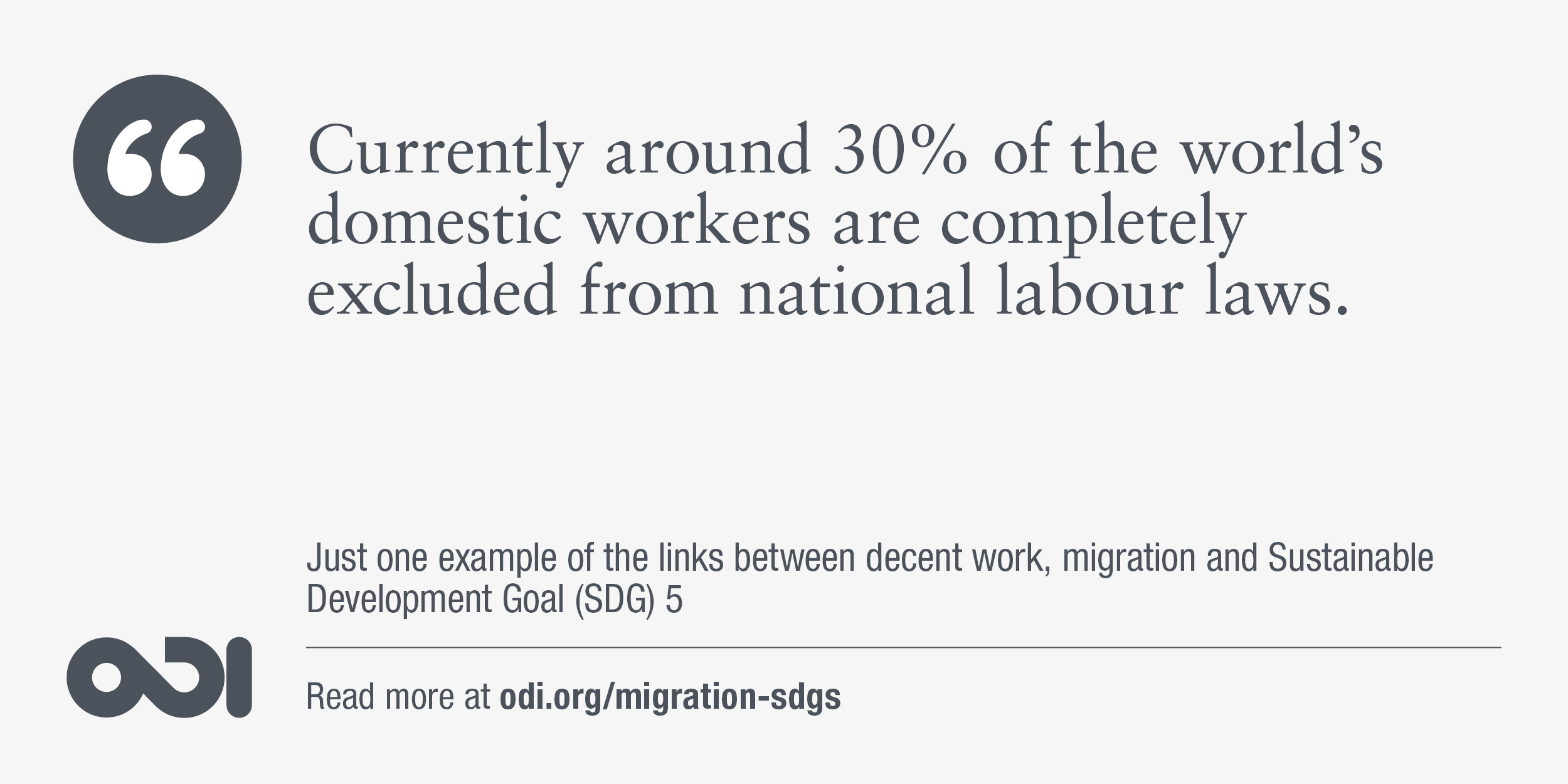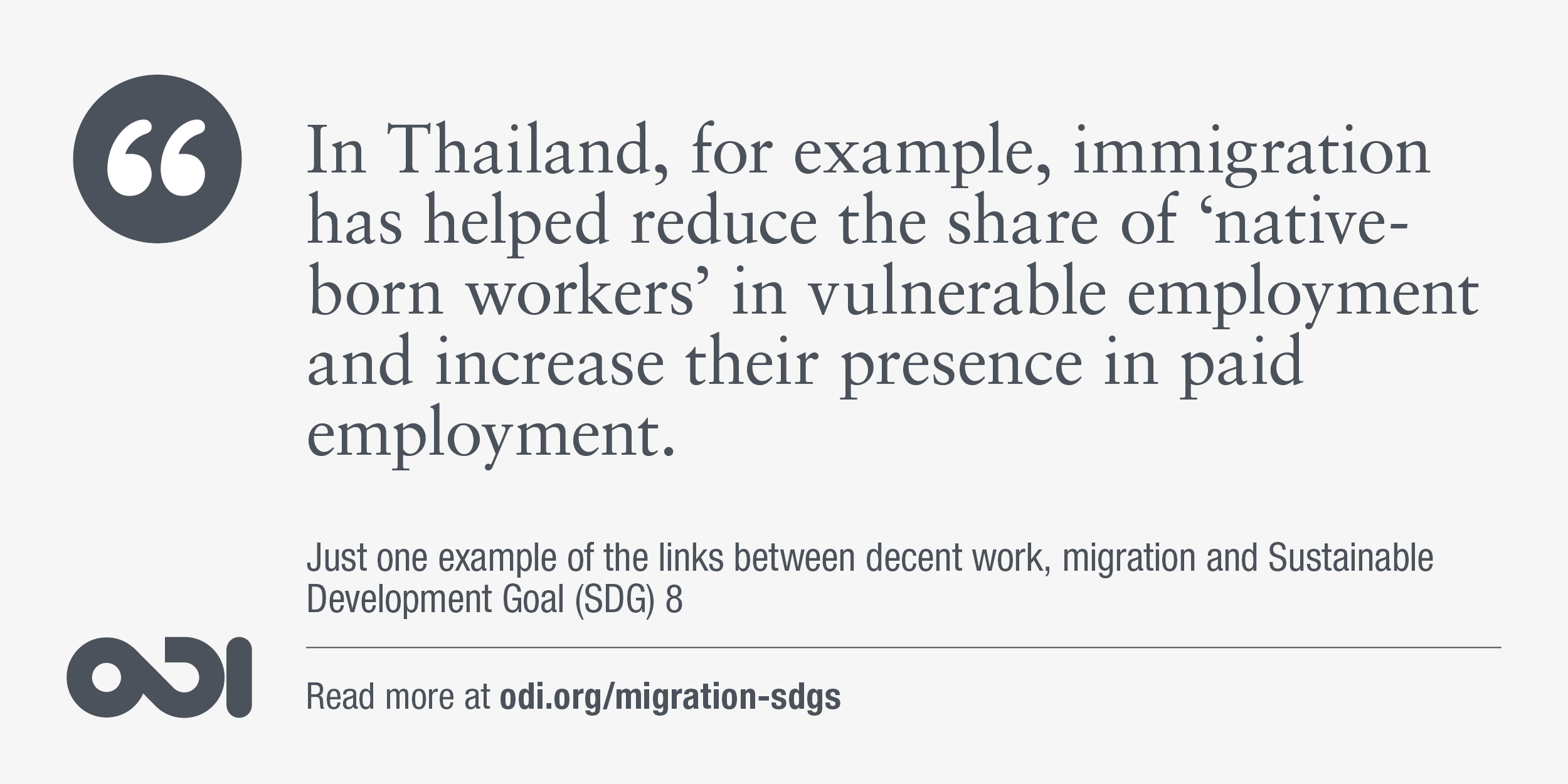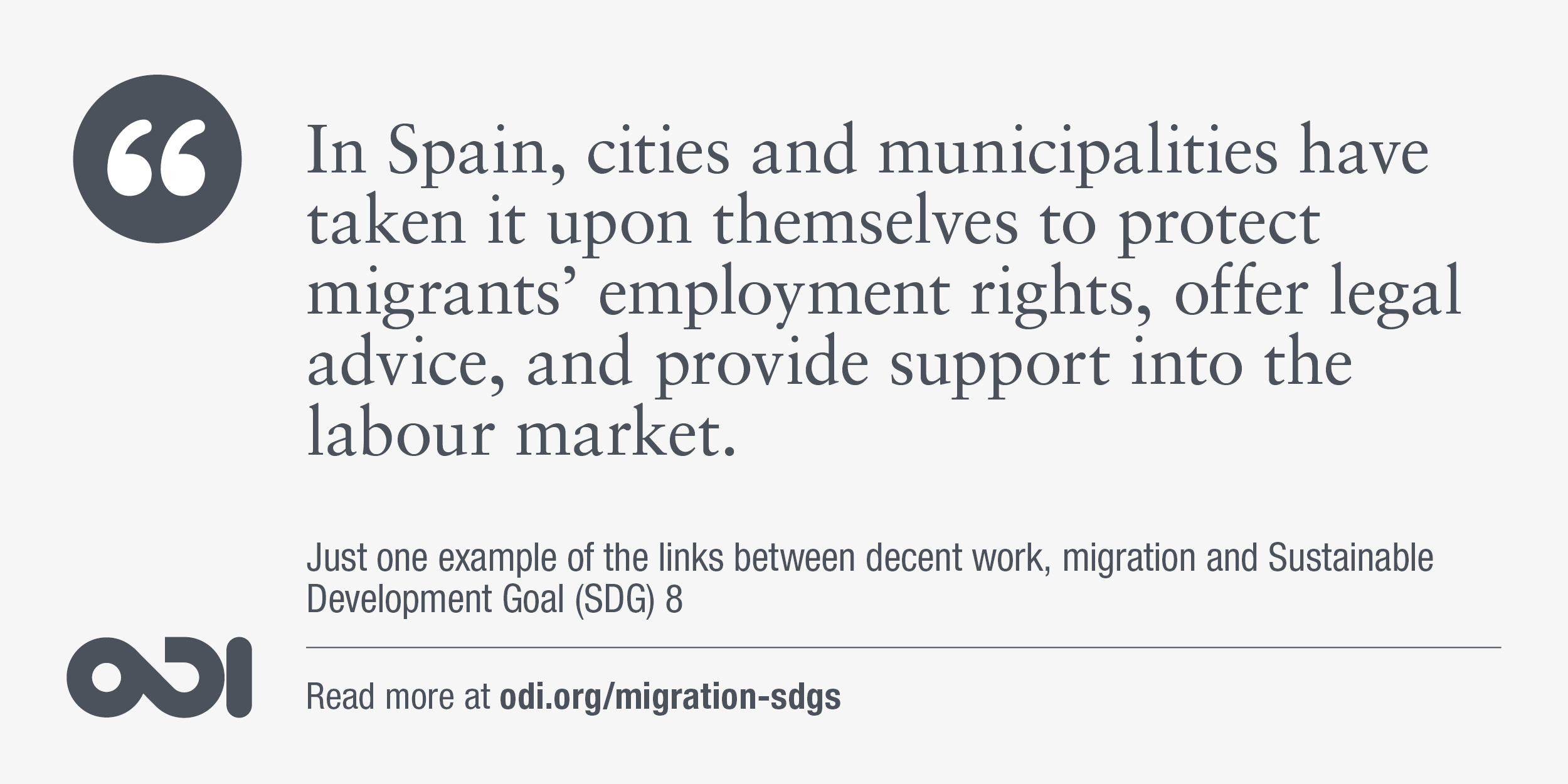This briefing explores international labour migration against the backdrop of the 2030 Agenda for Sustainable Development. It uses a ‘decent work’ lens to explore how employment (in relation to its quality, terms and regulation) relates to migration (including the decision to migrate, integration, return and remittance-sending).
Key messages
- Low- and semi-skilled labour migrants face significant difficulties accessing ‘decent work’ in host countries.
- Globally, 40% of workers are in vulnerable or precarious forms of work – migrants are disproportionately represented in this share.
- Low quality work at destination limits the potential economic returns of migration and can impede migrants’ integration into host communities.
- Providing employment alone in areas of origin is unlikely to stop migration. Many people move abroad even when opportunities ‘at home’ are available.
This is the twelfth in a series of policy briefings on the relationship between migration and 2030 Agenda for Sustainable Development.
Richard Mallett



